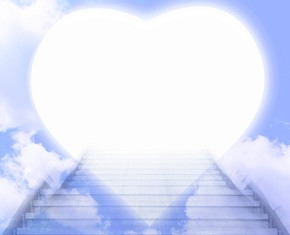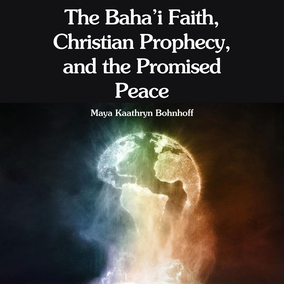The views expressed in our content reflect individual perspectives and do not represent the authoritative views of the Baha'i Faith.
In the great myths of every human civilization, heroes undertake a quest. They leave the comfort and familiarity of their homes and go out into the unknown, to undergo tests and trials in search of something: understanding, or the Grail, or themselves. After those heroes go through difficulties and fight dragons and pass tough inner tests of their mettle and fortitude, they find what they sought, grow spiritually, and bring a great bounty back to their society.
The renowned scholar of myth, Joseph Campbell, summarized the hero’s quest in one sentence:
A hero ventures forth from the world of common day into a region of supernatural wonder: fabulous forces are there encountered and a decisive victory is won: The hero comes back from this mysterious adventure with the power to bestow boons on his fellow man. – The Hero with a Thousand Faces
What does this heroic journey symbolize? Campbell came to believe, after studying hero myths from cultures all over the world, that the hero’s journey means breaking through our personal limitations. It represents the path of spiritual growth and maturation we all walk in this material life:
The agony of breaking through personal limitations is the agony of spiritual growth. Art, literature, myth and cult, philosophy, and ascetic disciplines are instruments to help the individual past his limiting horizons into spheres of ever-expanding realization. As he crosses threshold after threshold, conquering dragon after dragon, the stature of the divinity that he summons to his highest wish increases, until it subsumes the cosmos. – Ibid.
Hercules with his twelve labors; Osiris with his repeated death and resurrection; Prometheus, who stole fire from Zeus and gave it to humanity; Luke Skywalker rescuing the Rebel Alliance—all of these mythological heroes had to first face obstacles, threats and battles which stand for their own inner spiritual limitations, and then transform and transcend them:
…the first work of the hero is to retreat from the world scene of secondary effects to those causal zones of the psyche where the difficulties really reside, and there to clarify the difficulties, eradicate them in his own case (i.e., give battle to the nursery demons of his local culture) and break through to the undistorted, direct experience and assimilation of what C. G. Jung called “the archetypal images.” – Ibid.
What does this mean?
In Baha’u’llah’s Tablet of the True Seeker, written in 1861 as part of The Book of Certitude, we get a summary of the hero’s—and the spiritual seeker’s—preparation for the quest:
That seeker must at all times put his trust in God, must renounce the peoples of the earth, detach himself from the world of dust, and cleave unto Him Who is the Lord of Lords. He must never seek to exalt himself above any one, must wash away from the tablet of his heart every trace of pride and vainglory, must cling unto patience and resignation, observe silence, and refrain from idle talk. For the tongue is a smouldering fire, and excess of speech a deadly poison. Material fire consumeth the body, whereas the fire of the tongue devoureth both heart and soul. The force of the former lasteth but for a time, whilst the effects of the latter endure a century. – Baha’u’llah, The Book of Certitude, pp. 192-193.
Every spiritual seeker has to become a questing hero, in other words, and “detach himself from the world of dust.” The first tasks Baha’u’llah outlines—to trust God, shun self-exaltation, aspire to humility, practice patience and observe silence—urge the true seeker to learn to listen rather than speak.
Every spiritual path offers us that same advice:
All my days I grew up among the sages, and I have found nothing better for a person than silence. – The Talmud
I am silence among all secrets. – The Bhagavad Gita
Silence is an empty space, space is the home of the awakened mind. – Gautama Buddha
Even a fool who keeps silent is considered wise… – Proverbs 17:28.
Listen or thy tongue will keep thee deaf. – Native American saying
Silence is a source of great strength. – Lao Tzu
In silence there is eloquence. Stop weaving and see how the pattern improves. – Rumi
It has often occurred to me that a seeker after truth has to be silent. – Gandhi
The essence of true safety is to observe silence, to look at the end of things and to renounce the world. – Baha’u’llah, Tablets of Baha’u’llah, p. 156.
Those who speak the loudest, the longest or the most frequently often do so with the intention of exalting themselves above others. This self-exaltation, Baha’u’llah cautions us, leads to pride and vanity; bolsters the selfish part of the ego and turns us away from unity and truth. No true seeker can ever discover inner truth while exalting himself over anyone else. Instead, a spirit of humility and self-abnegation leads seekers to the object of their quest, as the Bible also suggests:
Baha’u’llah concludes this section of the Tablet of the True Seeker with a cautionary sentence about backbiting, gossip and slander, which both the Bible and the Baha’i teachings view as deadly to the spirit:
The tongue is a small thing, but what enormous damage it can do. – James 3:5.
That seeker should also regard backbiting as grievous error, and keep himself aloof from its dominion, inasmuch as backbiting quencheth the light of the heart, and extinguisheth the life of the soul. – The Book of Certitude, p. 193.
In this part of the Tablet of the True Seeker, Baha’u’llah regards the seeker as a heroic figure who strives to slay the inner dragons we all face; gain self-mastery over the lower part of our nature; and work to listen, not only to our own innate inner wisdom but to the voice of the Creator.
Next: The Ten Attributes of a True Seeker
















Comments
Sign in or create an account
Continue with Googleor